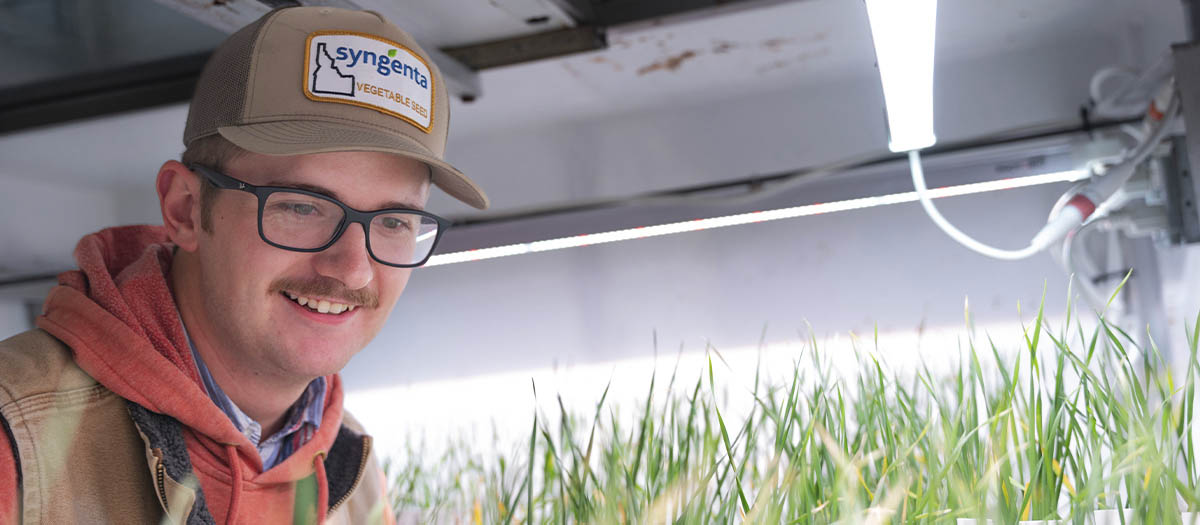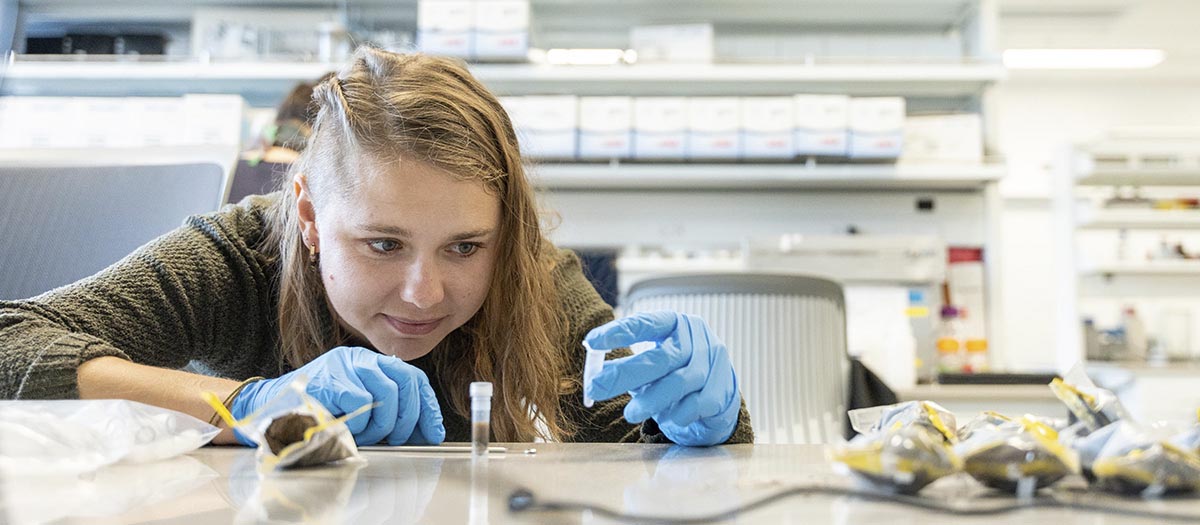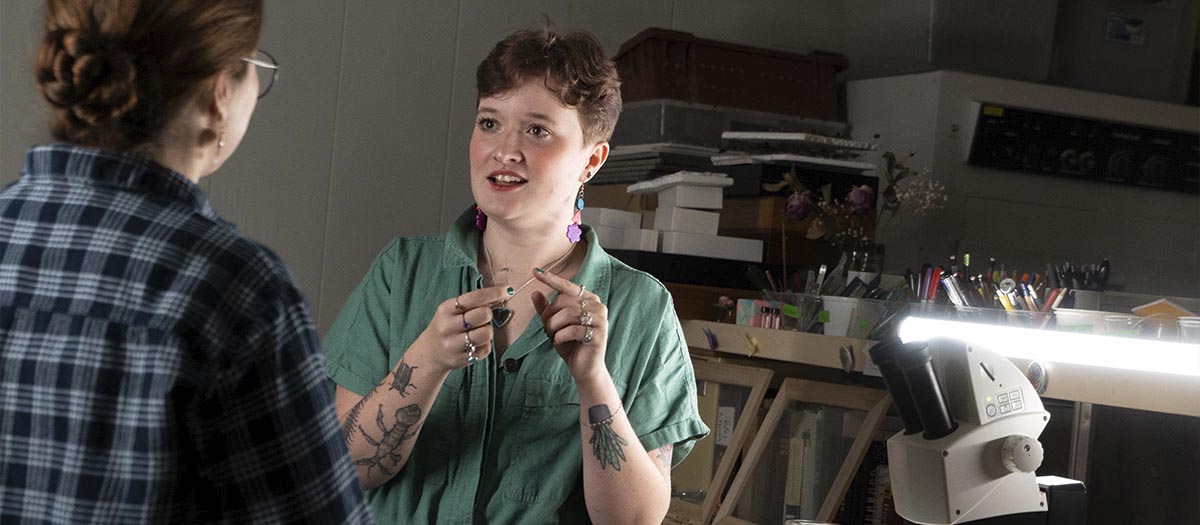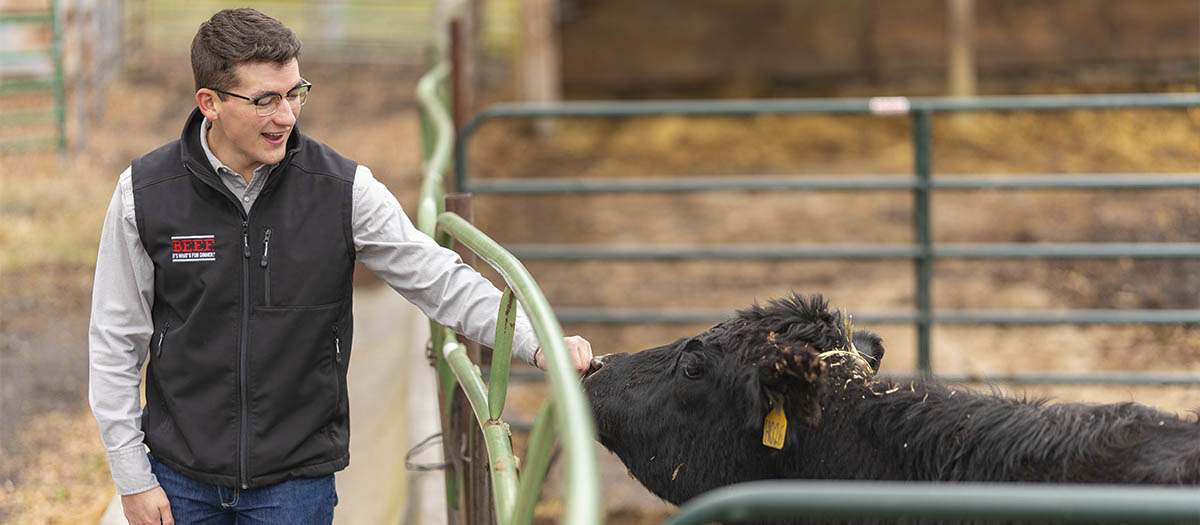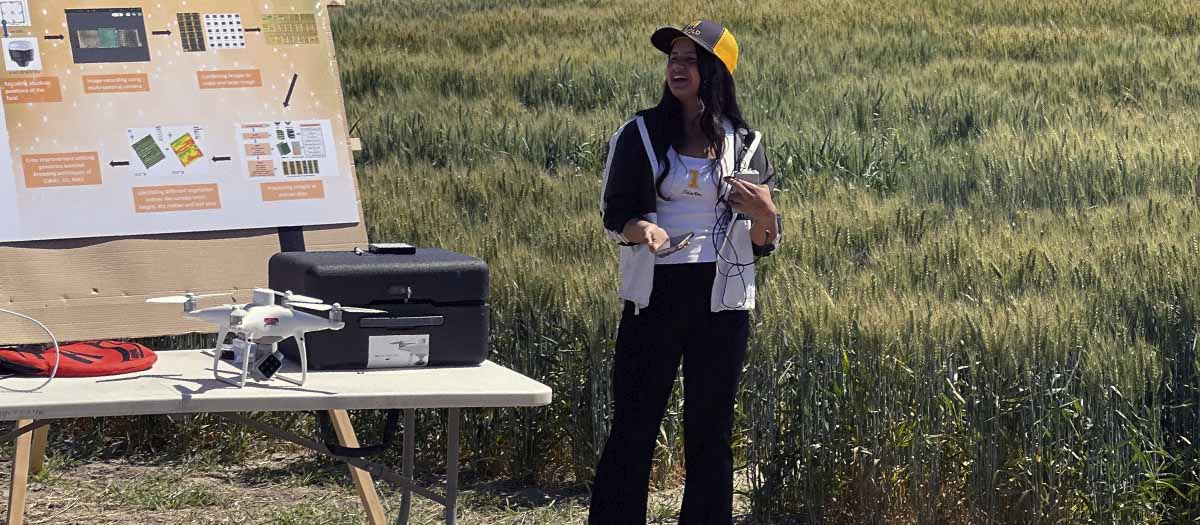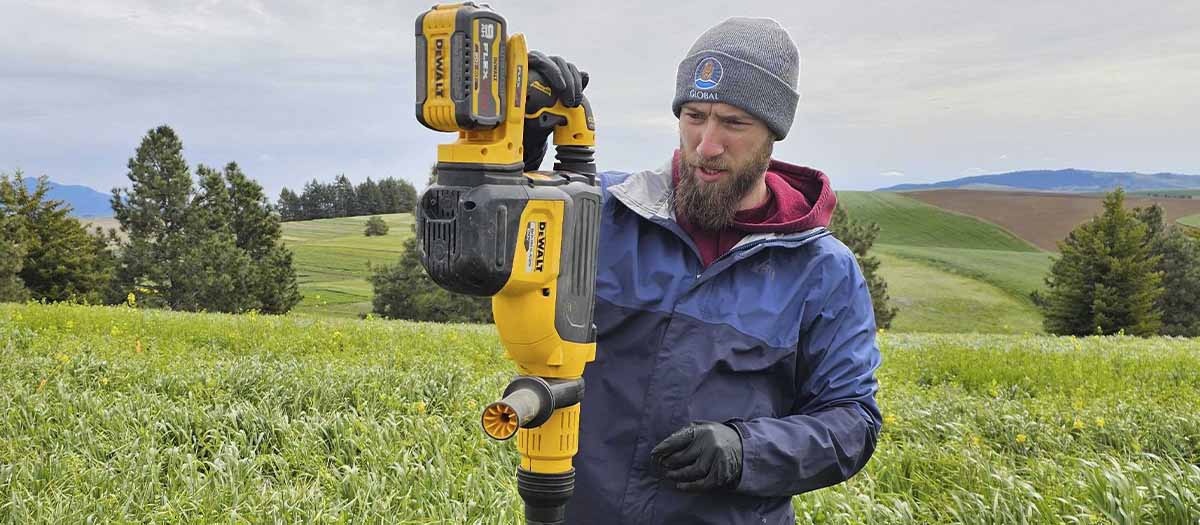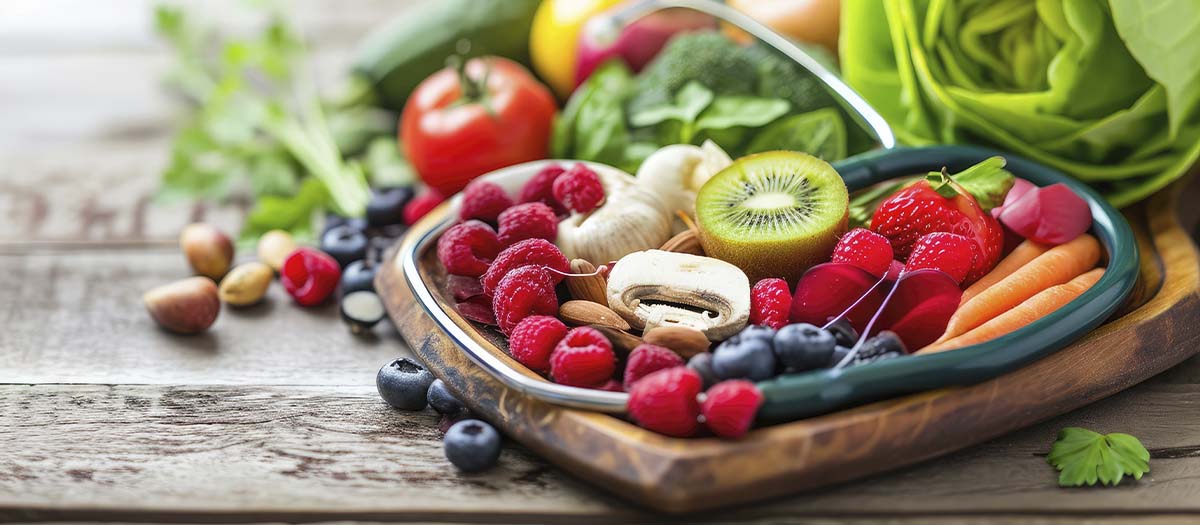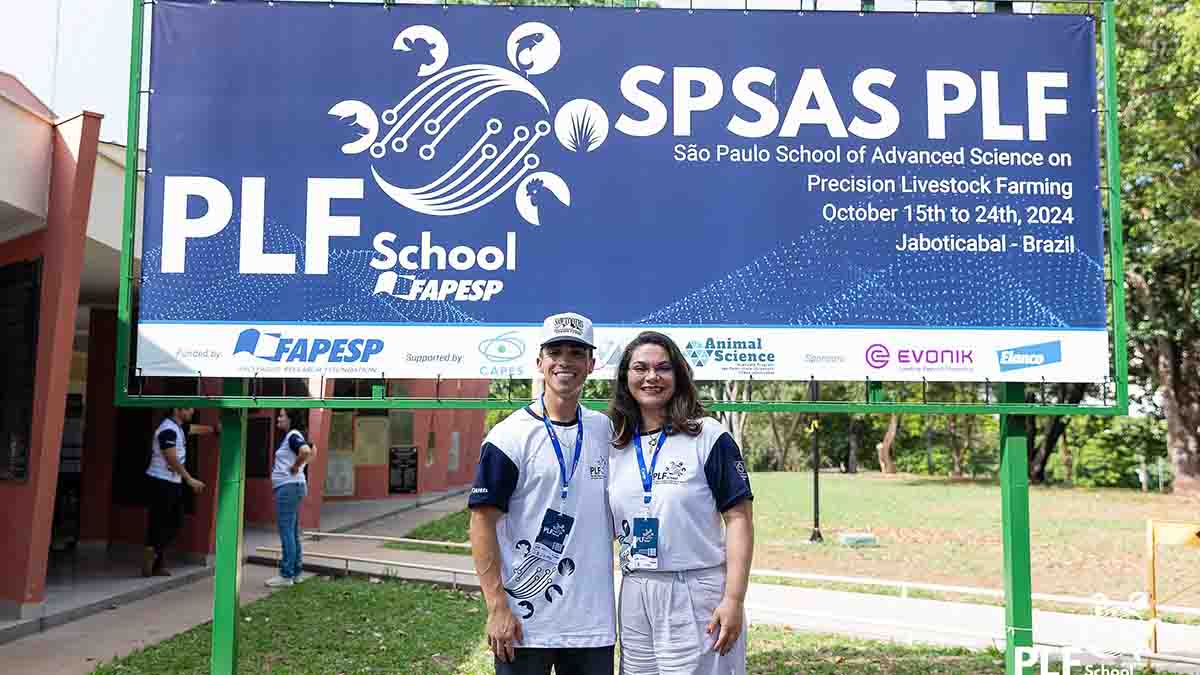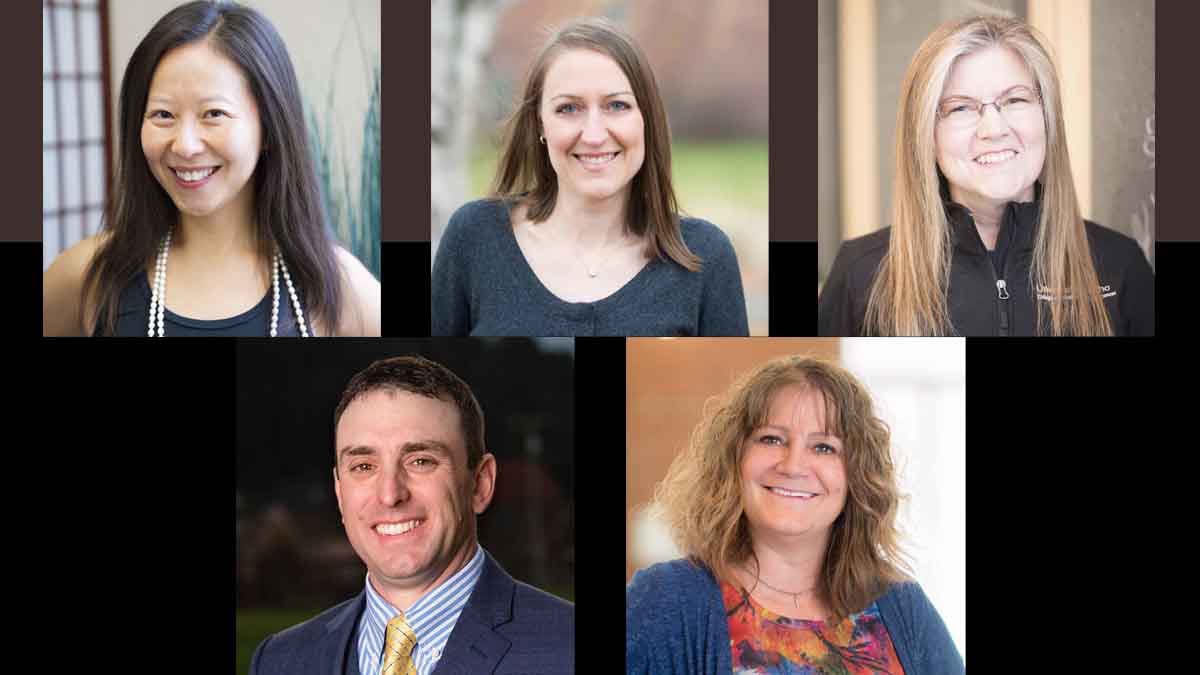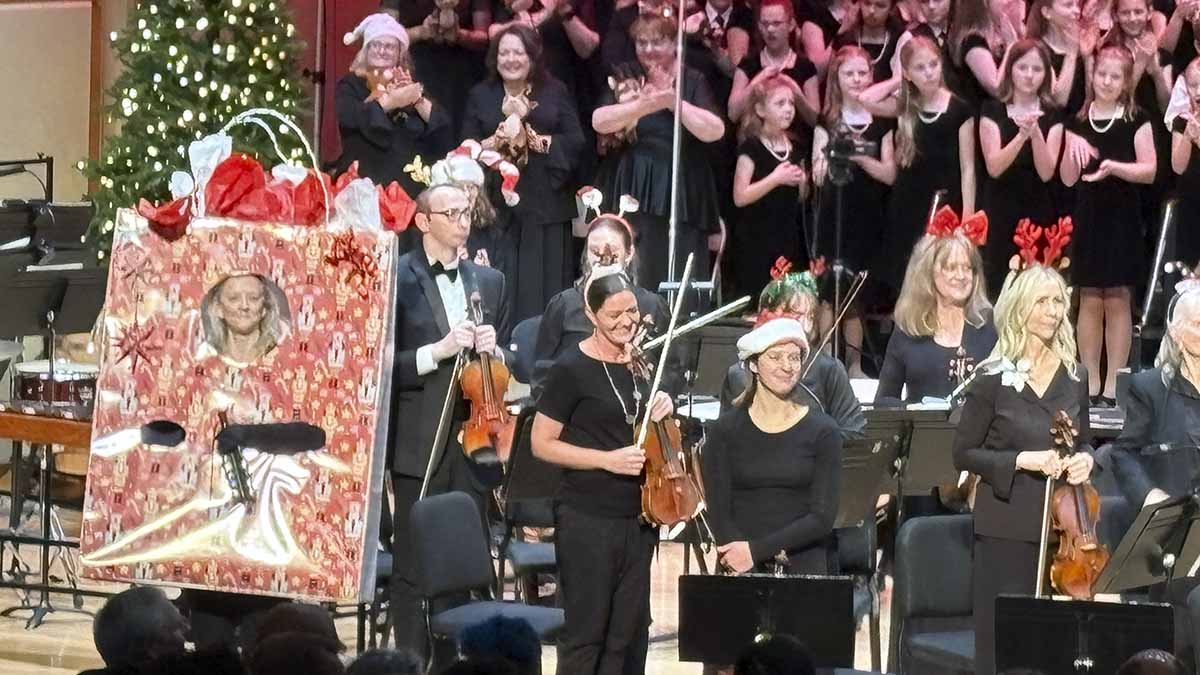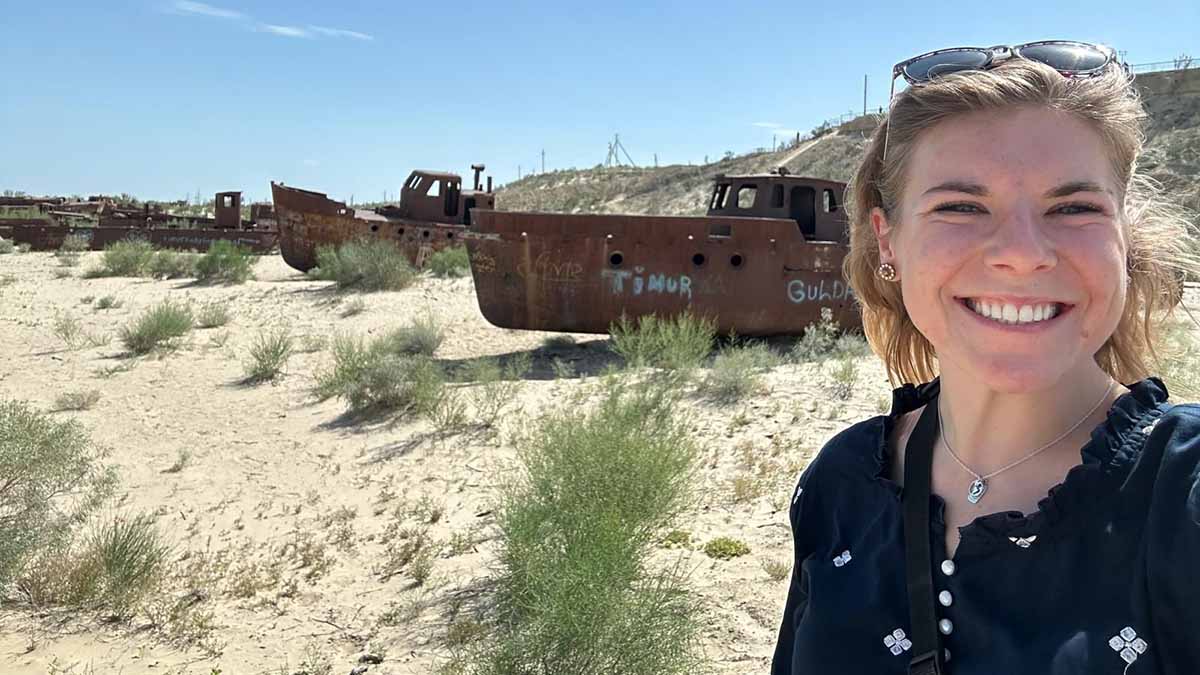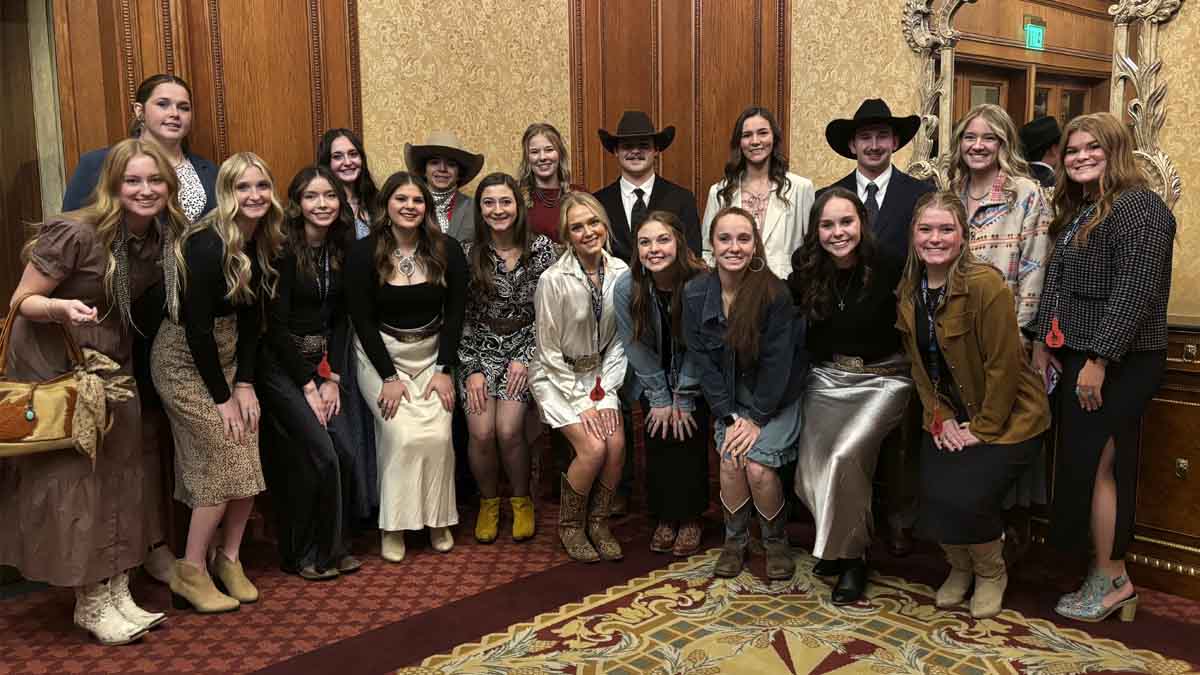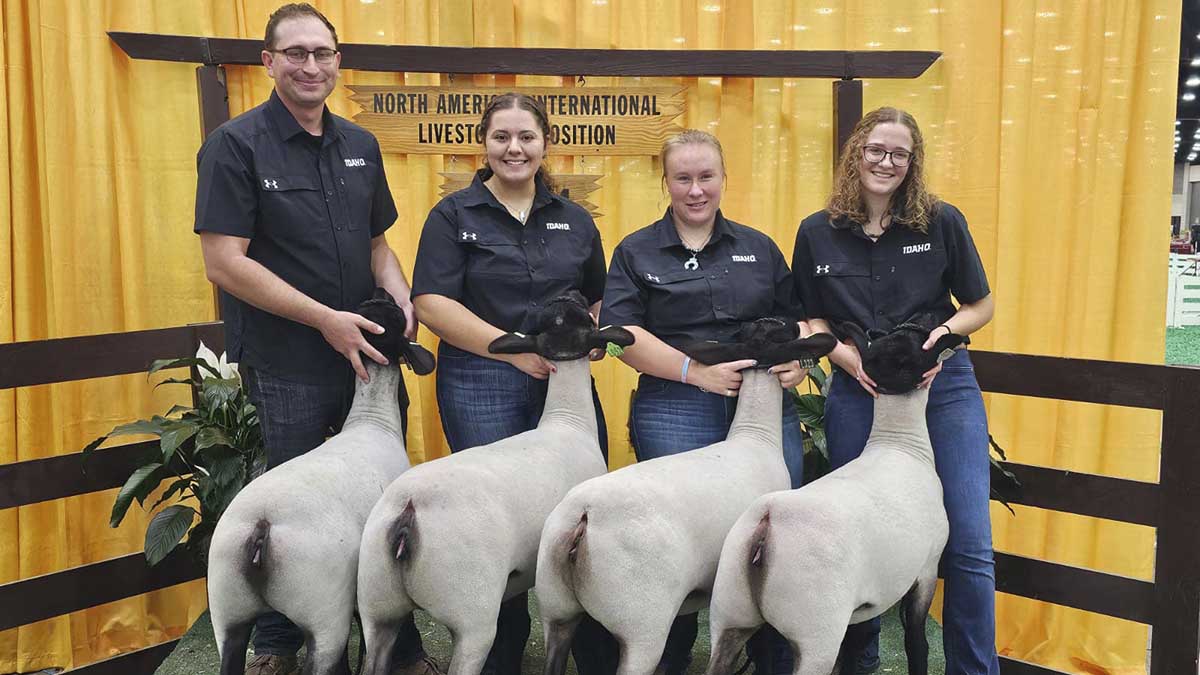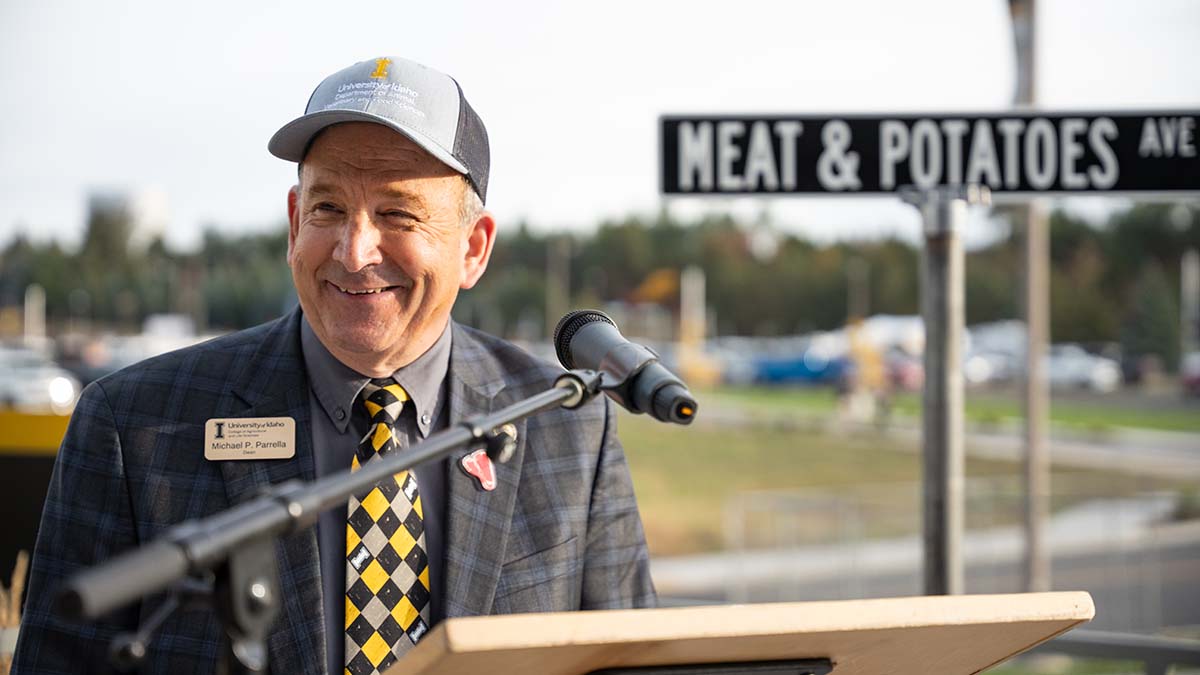Catching Up with CALS — Dec. 11, 2024
Dean's Message — Climate-smart Marketing
In a spacious conference room overlooking the city of Taipei, Sanford Eigenbrode had the rapt attention of Taiwan’s major flour millers as he laid out the details of our college’s largest research and Extension project, called the Innovative Agriculture and Marketing Partnership for Idaho (IAMP). Eigenbrode, a University of Idaho distinguished professor of entomology, was asked to prepare 10 minutes of slides on IAMP, a CALS-led collaboration funded with a five-year, $55 million U.S. Department of Agriculture grant incentivizing Idaho’s farmers and ranchers to voluntarily adopt agronomic practices intended to improve soil health and reduce greenhouse gas emissions. IAMP data will help CALS scientists quantify the environmental benefits of designated grower-smart agricultural practices conducted under Idaho’s conditions and should be invaluable in justifying premiums for niche products marketed and labeled as being “climate smart.” The program is now accepting applications from Idaho producers. Clearly, sustainability is also on the minds of Taiwanese consumers, as an hour and a half elapsed before the millers wrapped up their IAMP-related questions during that meeting, hosted as part of Governor Brad Little’s trade mission to Taiwan and Japan.
I was pleased to join Eigenbrode, agricultural engineering Professor and IAMP Co-director Erin Brooks, International Programs Director Robert Haggerty and Associate Professor Xiaoli Etienne, Idaho Wheat Commission’s Bill Flory endowed chair for risk management, on ISDA’s seven-day mission, which concluded in early November. We accompanied officials representing 21 other Idaho businesses and organizations. Eigenbrode and Brooks found willing ears in both Asian trade markets as they sought to build interest in climate smart-sourced wheat, barley, hops and other IAMP-eligible commodities. Wheat is a primary commodity raised by IAMP growers, and Idaho is celebrated internationally for the outstanding quality of its grain — especially for its soft white wheat. “In Taiwan they recognized there is an increasing interest in sustainability among their consumers, and this was the same story in Japan,” Eigenbrode said. “The idea that we could have significant amounts of verified climate-smart products for their supply chain was appealing to them.” Another important benefit of the trade mission is the opportunity to network and strengthen ties with stakeholders and leaders in Idaho government. I was especially encouraged when Gov. Brad Little voiced support of our heightened emphasis on sustainable agriculture to members of the Taiwan Flour Millers Association. “Years ago, we thought no-till meant no crop. We have come a long way,” Little told the group.
Even before ISDA announced the destinations of its 2024 trade mission, Arrowleaf Consulting, an IAMP partner with a sub-award to investigate demand and supply chains for climate-smart products, had identified the outstanding potential of Asian markets for sustainably sourced commodities. The logistics of segregating climate-smart grain from the general supply shipped abroad could pose a significant hurdle for the wheat market. The international craft brewing sector, however, is ideally situated for climate smart malt and hops producers to tap immediately. Craft brewers already brew in small batches and have specialized, segregated supply chains in place. While in Taipei, members of our team toured two popular craft breweries led by young, enthusiastic entrepreneurs. They’re eager to produce a climate-smart beer, and we’ll remain in communication with them until it’s time to toast the fruition of a mutually beneficial partnership. In Japan, some of our team members stopped by a microbrewery located near our hotel, finding branding about sustainability and recycling covering every wall in the tap room — also warranting follow-up conversations. Some of our CALS team members met with leaders of Japan’s Ministry of Agriculture, Forestry and Fisheries (MAFF), who are rolling out a sustainability certification called Midori, which means “green” in Japanese. MAFF’s goal is to eventually make Japan’s entire food system green, and they’ll need many new sources of climate-smart commodities to clear that bar. Eigenbrode said of the visit with MAFF, “They told us all about Midori, and we told them all about IAMP, and we were all on the same page.” As climate disruptions continue to accelerate and affect people’s lives in greater ways, support will undoubtedly grow for efforts such as IAMP, and we are fortunate to be at the forefront of the trend.
IAMP is but one example of how we’re a college and university on the rise and we’re positioning ourselves well for the future. Also consider our college’s recent 2025 ranking by niche.com, in which we were listed at No. 13 among the best colleges of agricultural science. Perhaps the greatest way in which U of I is helping to better communities, however, is by training outstanding students who graduate and bring their skills to the workforce. I’d like to extend my heartfelt congratulations to all U of I and CALS graduates who received degrees during our Dec. 7 commencement ceremony. We look forward to remaining in touch with them and offering our continued support throughout their careers. In turn, they’ll be our greatest ambassadors, elevating our prestige with every contribution they make to their chosen fields.

Michael P. Parrella
Dean
College of Agricultural and Life Sciences
By the Numbers
The College of Agricultural and Life Sciences congratulates the 52 graduates who participated in the Dec. 7 Winter Commencement ceremony. Of the students who were honored, 32 received a bachelor’s degree, 15 received a master’s degree, 6 received a doctoral degree and 3 students received an academic certificate. 1 student graduated Summa cum laude.
Our Stories

Passion for Plants
Jack Scheffler’s interest in agriculture began in Illinois when he was 8 years old. His father worked for Monsanto producing field corn seed and asked him if he’d be interested in selling sweet corn for a friend. He started with an acre of sweet corn in Illinois and eventually expanded to 26 acres when his family moved to Pasco, Washington the summer before his freshman year of high school.
He began taking agricultural courses in high school and joined FFA where his interest in plant science continued to grow, leading him to the University of Idaho. He graduates in December 2024 with degrees in crop science and management, agricultural economics: agribusiness emphasis, a certificate in agricultural commodity risk management (ACRM) and a minor in accounting.

Beneath the Surface
Bronte Sone’s research subjects aren’t easy to work with — they’re microscopic and number in the billions in just small samples. Yet, they are vital to agricultural systems.
Soil microbial communities, which include bacteria, fungi and archaea, play a critical role in ecosystems. Soil microbes help with nutrient cycling, produce and consume greenhouse gases, enhance plant growth, and help plants access more water and nutrients, among other benefits.

Cultivating Curiosity
Abigail Crawford was a self-proclaimed horse girl as a child with the dream of becoming a veterinarian so she could work with horses every day. Growing up in Kuna, Crawford didn’t have a direct connection to agriculture, so she decided to enroll in agriculture classes in high school to gain experience working with horses and to learn more about veterinary science.
That fateful decision introduced Crawford to her true passion — plant science, specifically weed science — and set her on a course to the University of Idaho. She will earn her degree in crop science and management in December 2024 and start her career in plant science research.

Leap of Faith
Every summer from the age of 8 until he was 12, Ken Koceja spent three idyllic months on his grandparent’s farm in Baja California, Mexico. He enjoyed the slower and quieter pace of life compared to his experiences in the suburbs of Camas, Washington during the rest of the year. He was able to explore the outdoors and help his grandfather with small tasks on the farm. Around the same time, he joined the Boy Scouts where he discovered a love for horses.
Those experiences developed a curiosity and appreciation for agriculture, eventually leading Koceja to the University of Idaho where he will earn a degree in animal and veterinary science: business option in December 2024.

Advancing Wheat Breeding
Idaho farmers can expect more varieties to be released from University of Idaho’s wheat breeding program that resist the fungal diseases dwarf bunt and common bunt thanks in large part to the work of a recent doctoral graduate, Pabitra Joshi.
Joshi, of Nepal, also became a licensed drone pilot for a research project using modeling and high throughput phenotyping — which involves collecting large amounts of data to assess phenotypic traits of plants — to assess potential yield, height, maturity, biomass and other traits among wheat cultivars at the U of I’s Aberdeen Research and Extension Center.

From Sea to Soil
Connor Daugherty’s path to the University of Idaho took a few twists and turns. After growing up on his family’s 140-acre farm in Charlo, Montana, Daugherty decided he wanted to try something completely different. He enrolled at Maine Maritime Academy in Castine, Maine and earned a bachelor's degree in marine biology and small vessel operations. He also met his wife, and the pair decided to move to Washington where Daugherty took a position as a deckhand for the Western Towboat Company.
Although he loved being on the ocean, the long rotations to Alaska meant that Daugherty would go months without seeing his wife. After two years, he knew he needed to consider a different career path. The couple’s long-term plan was to settle in Montana, so Daugherty began searching for master’s programs that would complement his biology background, agriculture experience and apply to environmental issues — this time on the ground rather than the water.

Transforming Lives Through Nutrition
Raveen Rani never thought much about food and nutrition until a health scare opened her eyes to the importance of a healthy diet. Growing up in Mansa, Punjab, India, Rani had access to an abundance of locally grown and nutritious food, yet, like many children, gravitated towards fast food and unhealthy snacks. After being admitted to the emergency room for a health crisis, Rani met with a nutritionist and was advised to change her eating habits if she wanted to stay healthy.
That experience had a profound impact on Rani and ultimately led her to the University of Idaho and a master’s degree in nutritional sciences.
Faces and Places
In October, Izabelle Teixeira, a University of Idaho Extension dairy specialist, and her master’s student, Daniel Salas, participated in the São Paulo School of Advanced Science in Precision Livestock Farming (PLF-School), held at the UNESP in Jaboticabal, Brazil. This international event brought together 122 graduate students and young researchers from 14 countries to explore cutting-edge technologies in precision livestock farming, aimed at improving animal management practices in a sustainable and efficient manner. The event featured lectures on topics such as automated animal monitoring, behavior analysis and the use of artificial intelligence in improving livestock farm productivity.
Seven CALS students were chosen by a committee of faculty, staff, alumni and friends of the university to receive the Alumni Award for Excellence, based on their outstanding academic record, campus accomplishments and community involvement. This year, the university is honoring 50 students and received 120 nominations. The students were presented the award during a banquet on Nov. 12. CALS awardees and their mentors included Alexis Biasotti, animal and veterinary science: pre-vet option, and mentor Yimin Chen; Natalie Ellis, animal and veterinary science: pre-vet option, and mentor Amy Skibiel; Saige Grundman, animal and veterinary science: pre-vet option, and mentor Stacey Doumit; Katie Hebdon, animal and veterinary sciences: dairy option and agricultural economics: agribusiness emphasis, and mentor Phil Bass; Alexandra Pace, animal physiology, and mentor Amy Skibiel; Logan Pomi, animal and veterinary science: production option, and mentor Sharon Murdock; and Mia Wanstrom, horticulture and urban agriculture, and mentor Robert Tripepi.
Pamela Hutchinson, Extension potato cropping systems weed scientist based at the Aberdeen Research and Extension Center, stood out among the crowd during the final song of the Idaho State-Civic Symphony’s annual Joy to the World holiday concert Dec. 6-7. Hutchinson, who is a percussionist with the symphony, appeared on stage dressed as an enormous Christmas gift while she performed during “Sleigh Ride.”
Marina Steiner, a graduate student studying water resources: science and management option, has been selected as a 2024 Accelnet PEER2PEER Fellow by the National Academies of Sciences, Engineering and Medicine. Steiner will travel to Samarkand, Uzbekistan in May 2025 to collaborate with Toshpulot Rajabov at Samarkand State University on the implementation of water saving technologies and efficient irrigation methods under increased drought and soil salinization in Uzbekistan agriculture.
CALS student members of the Student Idaho Cattle Association recently attended the Idaho Cattle Association Convention in Sun Valley. They heard from industry professionals, agriculture advocates and different companies to learn about new technology and trends, as well as the abundance of opportunities in the industry.
CALS undergraduates Tressa Wade, Jenna Whitaker and MaKenzie Voges joined Sheep Center Manager Dino Vinci at the North American International Livestock Exposition in Louisville, Kentucky where they showed four ewe lambs and one ram lamb.
Michael Parrella, J.R. Simplot Endowed Dean of the College of Agricultural and Life Sciences and special assistant to the president for agricultural initiatives, is the featured guest in episode 94 of the Redox Bio-Nutrients podcast, called Redox Grows. The 29-minute podcast was published on Dec. 4.







Events
- Dec. 9-13 — Food for Finals, 7 a.m. to 1:30 p.m., Ag Biotech Courtyard, Moscow
- Dec. 12 — Forestry Shortcourse, Sandpoint
- Dec. 18 — Third Wed. monthly to April 16, 2024-2025 Heritage Orchard Conference, Online
- Dec. 18 — Idaho Ag Outlook Seminar, Boise and Online
- Dec. 20 — Institute for Health in the Human Ecosystem undergraduate research funding application deadline, Online
- Jan. 22-23 — 57th annual Idaho Potato Conference, Pocatello
- Feb. 5 — East Idaho Cereals Conference, Fort Hall







